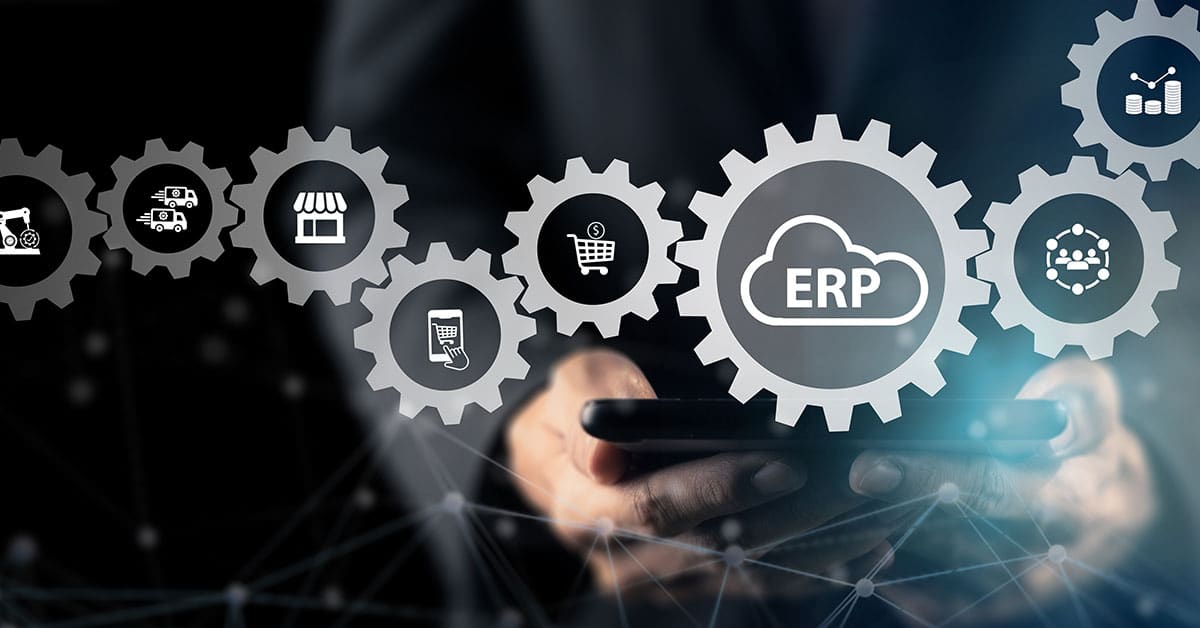In the world of manufacturing, mastering efficiency and productivity is the holy grail. This is where enterprise resource planning (ERP) systems come into play.
ERP, with its centralized management of critical processes including production, inventory, supply chain, maintenance, and quality assurance, has been empowering industries to streamline their operations and make more informed decisions. With the introduction of artificial intelligence (AI), however, the potential of ERP systems for manufacturing has grown exponentially.
In this guide we’ll dive into how AI and ERP are revolutionizing the manufacturing sector, reducing downtime, streamlining processes and driving unprecedented efficiencies for manufacturers across the world.
Examples of AI’s impact on ERP systems
AI plays a pivotal role in changing and “evolving” how companies function. At the heart of this evolution is the integration of AI with ERP systems. By automating tasks, improving data processing and refining business intelligence, ERP and AI are improving the ERP landscape on a larger scale.
ERP artificial intelligence is driving revolutionary improvements in a wide variety of industries:
Inventory & warehouse management
AI integration in ERP systems has massively impacted inventory and warehouse management. By accurately predicting demand based on historical data, AI helps balance production levels to avoid producing too little or too much, reducing waste, improving resource use and reducing costs.
Data processing & business intelligence
AI-enhanced ERP systems process vast volumes of data and provide real time insights, recommendations and strategic guidance. The ability to centralize data from different business departments simplifies data management and improves overall business intelligence.
AI tools can handle tasks like eliminating duplicate data, updating changed details and ensuring data accuracy. Having a single accurate source of truth helps bring about more informed decision making.
Process automation
AI is changing ERP systems by automating mundane manual tasks such as data entry and report generation. This frees up employees for more strategic work and reduces human error at the same time.
By streamlining repetitive tasks such as expense report management, order generation through chatbots and warehouse order confirmation, operations become leaner and more efficient.
Customer service
AI also revolutionizes customer service by providing real time visibility and optimization. It boosts the customer experience by using advanced analytics such as natural language processing (NLP) and image recognition to study customer feedback and interactions. Chatbots powered by AI can interact with users for tasks like ordering, expense reporting and job status updates, improving customer engagement.
Financial management
Artificial intelligence ERP systems automate financial processes such as monthly closing to reduce costs and verify reports. They can categorize invoice data to differentiate between purchases and bills accurately, speeding up the financial management process.
The result is streamlined month end reporting and reduced errors, helping companies achieve their financial goals faster.
Sales & lead times
AI lets ERP systems accurately predict demand and lead times based on data analysis. This improves planning and reduces production risk, thereby optimizing sales strategies as a whole. With more precise forecasting and adjustments to variables like demand changes, companies can effectively meet customer requirements, manage resource allocations and improve sales performance.
Talent aquisition
AI-powered ERP systems can improve talent acquisition processes by using employee performance and qualification data to plan and schedule service calls strategically. They can also streamline the recruitment process by sorting through massive amounts of applicant data and filtering the most suitable candidates to meet a company’s specific needs. This not only makes the process more efficient, but also increases the chances of acquiring high quality talent.
Machine learning in ERP
ERP systems act as the “nerve center” of industries including aerospace, automotive, building products, consumer packaged goods, heavy equipment, paper, pulp, tire and rubber. This software centralizes processes such as production, inventory, supply chain management, maintenance and quality assurance.
As a single source of truth in an organization, ERP systems can significantly improve visibility into these processes, driving more effective communication and collaboration across departments.
AI is giving ERP systems a significant facelift — one that begins with machine learning. Machine learning in ERP allows systems to autonomously adapt and improve from experience without being explicitly programmed. This revolutionizes mundane manual tasks such as data entry and report generation, freeing up employees to focus on more strategic work. Repetitive tasks like expense report management and order generation can be streamlined, significantly reducing labor hours.
AI can empower ERP systems with predictive abilities. These allow accurate forecasting of demand, optimization of inventory and the analysis of equipment performance data for proactive maintenance — a key selling point for industrial service providers. AI can also monitor equipment health, predict issues ahead of time, suggest production amounts, optimize resource use and reduce waste.
The integration of AI into ERP systems extends beyond just internal operations. It’s also transforming customer interaction with features like natural language interfaces and chatbots. These features significantly improve the customer service experience by handling tasks such as ordering, expense reporting and job status updates.
Summing up
The unification of artificial intelligence with ERP systems is revolutionizing the landscape of operational management, accelerating decision-making with real-time insights and reshaping the very core of business strategy.
By automating mundane tasks, AI becomes a powerful companion to ERP systems, enabling anticipation of future outcomes, optimized processes and predictive maintenance needs, ensuring that companies stay ahead of the curve in a hyper-competitive environment.






